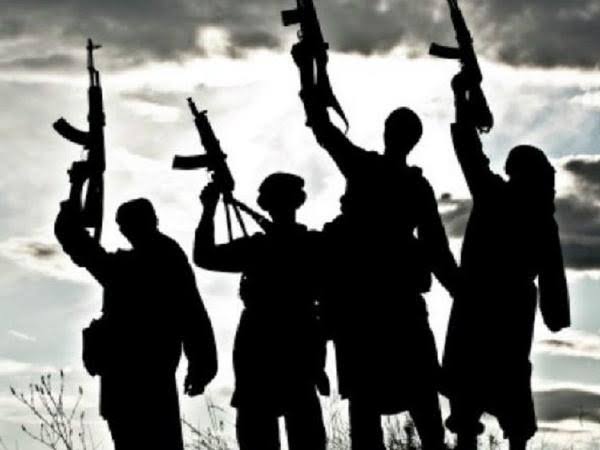From Taiye Joseph, Ilorin
In Kwara State, life in many once-peaceful communities has been thrown into uncertainty. From the dense forests of Kaiama and Baruten in the north to farmlands and highways in the south, residents are waking up to a new reality—one marked by abductions, blocked roads, and a sense of vulnerability that is fast eating into daily life.

“They come on motorcycles, kill and kidnap our people, and scare others into fleeing,” lamented a farmer from Kaiama. “Their mission is to take over our land, just like what happened in Kaduna and Zamfara.”
The wave of attacks, attributed to a faction of insurgents known locally as “Mahmuda,” has disrupted farming and trading across several local government areas. More than 100 farms have been abandoned in the north, raising fears of looming food shortages. In Kwara South, travellers have been targeted on highways, while locals complain of paying millions in ransom without securing the release of their loved ones.
Last week, frustration boiled over. Youths from Isanlu-Isin, Oke-Onigbin, and Edidi communities blocked the busy Ilorin–Omu-Aran–Kabba highway, carrying placards that read: “Enough is Enough” and “We are tired of paying ransom without results.”
Chief Michael Ayanda, one of the traditional leaders at the protest, voiced the anger of many: “We have paid N30 million for two people earlier kidnapped, but they are yet to be released. Today, we paid another N10 million for seven kidnapped members, but only one person was released. Our people cannot continue like this.”
The demonstration paralysed movement for hours, with long queues of trailers and buses stranded as bonfires burned on the highway. Even a prison vehicle carrying inmates to Ilorin had to turn back. Police and soldiers were deployed but struggled to disperse the determined protesters until senior officials, including council chairmen, intervened.
Meanwhile, the state government and military authorities insist they are not folding their arms. Governor AbdulRahman AbdulRazaq, has toured affected communities like Babanla, assuring residents that more troops and logistics are being deployed. “We reassure you and other communities that we will ensure this doesn’t happen again,” he told mourners in Ifelodun. “Security is everybody’s business, but government must lead from the front.”
The Nigerian Army has launched Operation “Park Strike Four,” targeting insurgent camps in Kaiama, Baruten, and the Kainji Forest. Major General Obinna Onubogu of the 2 Division disclosed that 12 suspects had been arrested and over 90 kilometres of forest cleared. “We have succeeded in dislodging bandits and other criminal elements,” he said.
Kwara South local government chairmen have also taken drastic steps, announcing the closure of all cattle markets until further notice—a painful decision they described as necessary to deny criminals cover and curtail infiltration.
Still, beneath the show of force lies a deep unease. Parents worry about their children on the way to school. Traders whisper about the risk of travelling with goods. Farmers weigh the danger of returning to their fields. “The terrorists may have been pushed back, but what if they regroup?” asked Mallam Ismaila Ahmed, the Serikin Fulani of Eleyin village, where several villagers remain in captivity.
Security analysts argue that the solution cannot come from guns alone. They point to the need for stronger intelligence gathering, tighter border control, and deeper collaboration with vigilantes and local chiefs. “Suppressing attacks is one thing, sustaining peace is another,” one expert noted.
For now, Kwara lives between fear and resistance. Communities continue to bury their dead, pay ransoms, and stage protests, while soldiers comb forests and governors make promises. Yet, amidst the anxiety, there is also a flicker of resilience—seen in the bravery of vigilantes who still volunteer to defend their people, and in the firm words of Governor AbdulRazaq: “These criminals will be flushed out. Our people must live in peace.”







